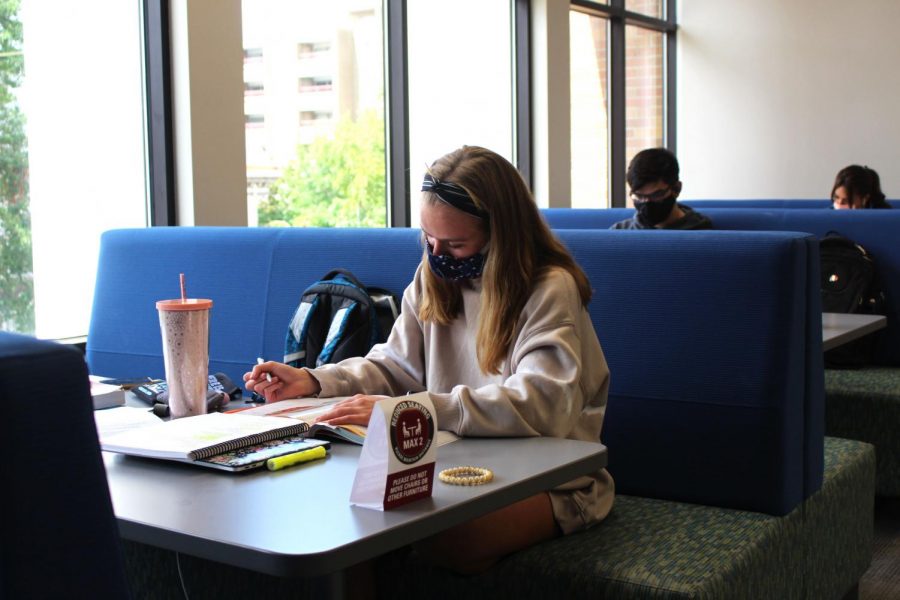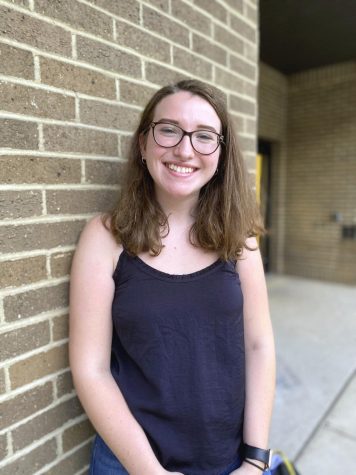Navigating study spaces during COVID-19
As the semester settles in, students learn how to study with social distancing
September 2, 2020
It is a no-brainer that studying is a part of a college student’s daily routine and is essential for performing well in class. However, after universities sent students home in response to the COVID-19 pandemic sweeping the world, many found it difficult to adjust to the unexpected transition from in-person to remote learning.
According to a study done by researchers at Arizona State University, more than half of the respondents reported that they had a decrease in their study hours because of the changes brought by the pandemic.
Another study done by ActiveMinds found that among those surveyed, more than 75% reported that they struggled to maintain a routine and almost 90% struggled to stay focused with distractions at home.
Some students at Gannon University said they have experienced a change in their usual studying routine, while others have not. Students now study with masks on if they are studying outside their dorms, study groups are not as big and social distancing procedures must be in place if studying in a group.
“I study the same amount I did before COVID, but now I am more cautious about where and who I study with,” said sophomore occupational therapy major Ella Rasper.
As universities are beginning to resume classes in-person, students are trying their new “study spots” all while remaining socially distanced and wearing face masks.
At Gannon, there are many places on campus students can study, complete assignments or take hyflex courses. Locations such as the Nash Library, the Palumbo Academic Center and Waldron Campus Center have areas for students to concentrate on their coursework.
In Nash, hundreds of seats are available in open areas throughout the library and outside for students to take advantage of. There are also over 40 computer stations, 15 loaner laptops and a limited number of headphones available. These are sanitized after every use. Just like before, the second and third floors are still quiet floors whereas the first floor and the basement are the more active areas. Along with this, 49 study rooms can accommodate two people. To ensure a private space, students should visit the library’s website or scan the QR code posted at each room.
All areas in other academic buildings around campus, such as the Palumbo Academic Center, the Waldron Campus Center and the Center for Business Ingenuity, are open during class time with signs designating where students may or may not sit. Although there are limitations to the seating arrangements around campus, students are starting to find their new study spots and get into a routine for the semester.
“My favorite places to study are in quiet places in Palumbo, the Honors Center and Nash Library,” said Joshua Perrin, a sophomore criminal justice major.
Because of the new social distancing standards set forth by the university, some have found it difficult to complete group projects in person. Social distancing procedures and capacity limits on study rooms make it difficult for groups any larger than two to meet and study or complete group projects.
“I usually study by myself,” Perrin said. “When I do study in groups, it is pretty difficult to work together with the COVID regulations.”
Despite some frustrations, students are finding ways to continue studying effectively, by either adjusting their usual routines or utilizing campus resources.
“Resources at Gannon like the STEM Center and the Student Success Center have helped with adjusting to the COVID regulations,” Scott Zanella a sophomore biology and pre-med major said. “I mostly study in the library study rooms where masks are required, but the absence of distractions is definitely worth the trouble.”
If you are struggling with adjusting to academics on campus during COVID-19, it may be useful to utilize the many student support resources that Gannon has to offer. The Writing & Research Center and the STEM Center are accepting appointments, and both are offering face-to-face and e-tutoring. As before, students can make appointments via the library’s website. Additionally, students may also reach out to the Student Support Center for more help and tips on effective studying and methods of adjusting to life during the COVID-19 pandemic.
NATALEE STINEBISER























